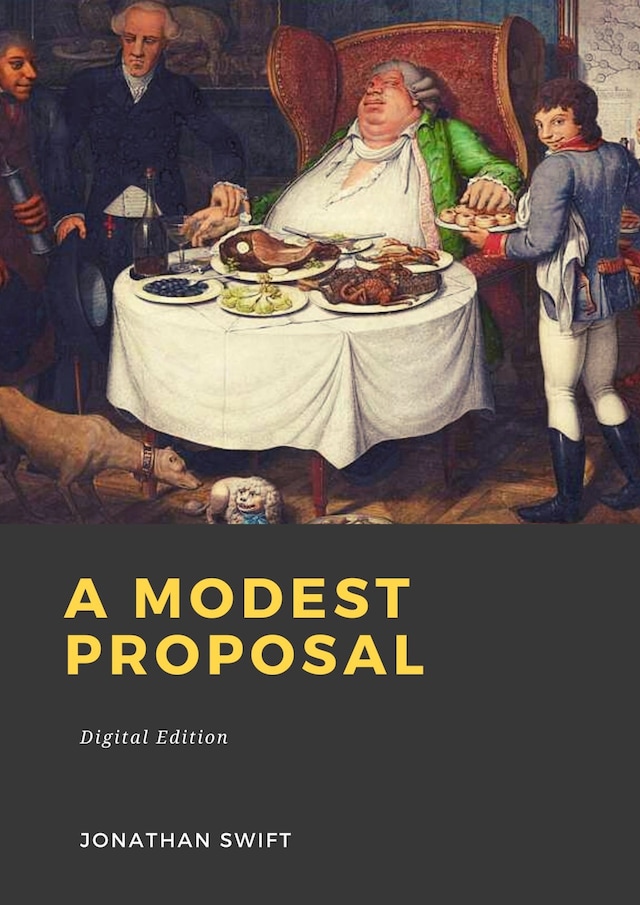
A modest proposal
Tietoa kirjasta
"A Modest Proposal" by Jonathan Swift is a satirical masterpiece that employs biting wit and irony to address the pressing issue of poverty and overpopulation in 18th-century Ireland. Swift's proposal, presented in a straightforward and logical manner, suggests a shocking and absurd solution to the problem: the consumption of infants.
As readers delve into this essay, they quickly realize that Swift's proposal is not to be taken seriously but is a scathing critique of British policies and their detrimental impact on Ireland. Swift adopts the persona of a rational economist to highlight the callousness of the British ruling class towards the impoverished Irish population.
Swift's brilliant use of irony and satire forces readers to confront the harsh realities faced by the Irish under British rule. The essay serves as a scathing indictment of colonialism and the exploitation of the Irish people.
"A Modest Proposal" is a timeless work of political satire that continues to be studied and admired for its sharp critique of social injustice. It challenges readers to think critically about the consequences of economic and political policies and the importance of empathy and compassion in addressing societal issues.
Delve into the world of Swift's biting satire and discover the power of literature to provoke thought and ignite change. "A Modest Proposal" remains a compelling and thought-provoking piece that resonates with readers concerned with social justice and political commentary.
ABOUT THE AUTHOR
Jonathan Swift (1667-1745) was an Irish satirist, essayist, poet, and cleric, best known for his works that blend sharp wit with social commentary. Born in Dublin, Ireland, Swift is celebrated for his satirical writings, including "Gulliver's Travels," a biting critique of society and politics.
Swift's writing style is characterized by his use of irony, humor, and allegory to criticize the shortcomings of the human condition and the follies of his era. "Gulliver's Travels" remains one of the most enduring and widely read satirical novels in English literature.
In addition to his literary contributions, Swift was also a clergyman and served as Dean of St. Patrick's Cathedral in Dublin. His multifaceted career and his ability to use humor as a tool for social commentary have cemented his place as one of the foremost satirists in literary history. Swift's legacy lives on through his timeless works, which continue to be studied and enjoyed for their insightful and entertaining critiques of society.
 Jonathan Swift
Jonathan Swift 13 Sivua
13 Sivua